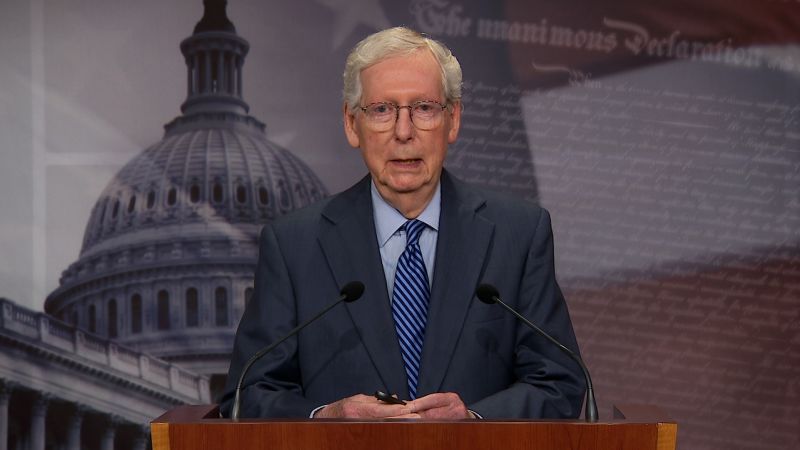McConnell’s comments came after Carlson, a conservative former Fox News host, criticized Republicans who support sending military aid to Ukraine as part of a larger foreign aid package. Carlson claimed that such support was a betrayal of the interests of the United States and suggested that those who supported the aid were not truly loyal to America. McConnell strongly disagreed with Carlson’s viewpoint, stating that aiding Ukraine is in the best interest of the United States and its allies. McConnell made it clear that he believes providing assistance to Ukraine is essential for maintaining global stability and security.
In response to Carlson’s comments, McConnell made a direct and forceful rebuttal, accusing Carlson of spreading anti-Ukraine sentiment and undermining efforts to pass the foreign aid package. McConnell argued that providing aid to Ukraine is not only moral but also strategically necessary for the United States. He emphasized the importance of supporting Ukraine in its ongoing conflict with Russia, which has been a key U.S. ally in the region. McConnell’s remarks highlight the deep division within the Republican Party over foreign policy issues, particularly when it comes to supporting countries like Ukraine.
McConnell’s criticisms of Carlson reflect a broader debate within the Republican Party about the direction of U.S. foreign policy, particularly in relation to Ukraine. While some Republicans, like McConnell, support providing aid to Ukraine as a way to counter Russian aggression and support democratic allies, others, like Carlson, believe that such aid is not in the national interest. The divide between these two perspectives has led to internal conflicts within the party and raised questions about the future of U.S. foreign policy under the Biden administration.
The foreign aid package in question includes funding for a wide range of programs and initiatives aimed at promoting peace and stability in various regions around the world. In addition to providing military assistance to Ukraine, the package also includes funding for humanitarian aid, economic development, and democracy promotion efforts in other countries. The passage of this package is seen as a critical step in reaffirming the United States’ commitment to its allies and strengthening global alliances in the face of increasing threats from authoritarian regimes.
McConnell’s decision to publicly criticize Carlson for his anti-Ukraine remarks underscores the importance of bipartisan support for foreign aid initiatives. By calling out Carlson’s rhetoric as harmful and counterproductive, McConnell is signaling that he believes it is essential for Republicans to stand united in their support for Ukraine and other U.S. allies. McConnell’s stance also reflects his broader commitment to promoting a strong and principled foreign policy agenda that prioritizes American interests and values. As Congress moves closer to passing the foreign aid package, McConnell’s leadership and advocacy for Ukraine will be crucial in ensuring its success.
Overall, Mitch McConnell’s rebuke of Tucker Carlson highlights the complex and contentious debates within the Republican Party over foreign policy issues. Despite their ideological differences, McConnell and Carlson’s clash underscores the ongoing struggle to define the party’s stance on key global challenges, such as the conflict in Ukraine. As the Biden administration seeks to navigate these challenges and build bipartisan support for its foreign policy agenda, the outcome of this internal debate will have significant implications for U.S. relations with its allies and adversaries alike. With McConnell and Carlson representing opposing viewpoints within the party, the battle over foreign aid to Ukraine illuminates the larger struggle for the soul of the Republican Party and its approach to global affairs in the 21st century.


